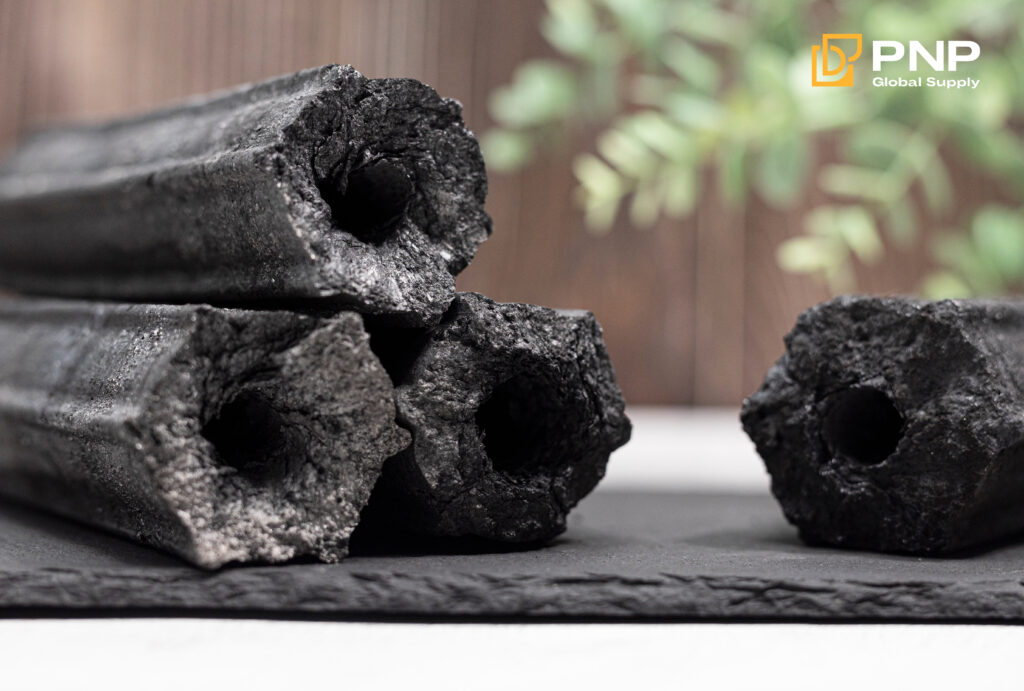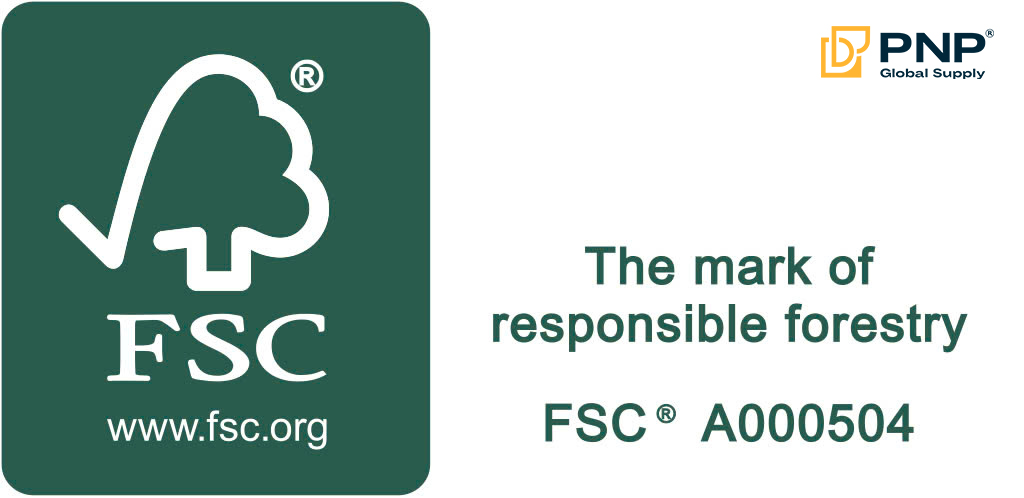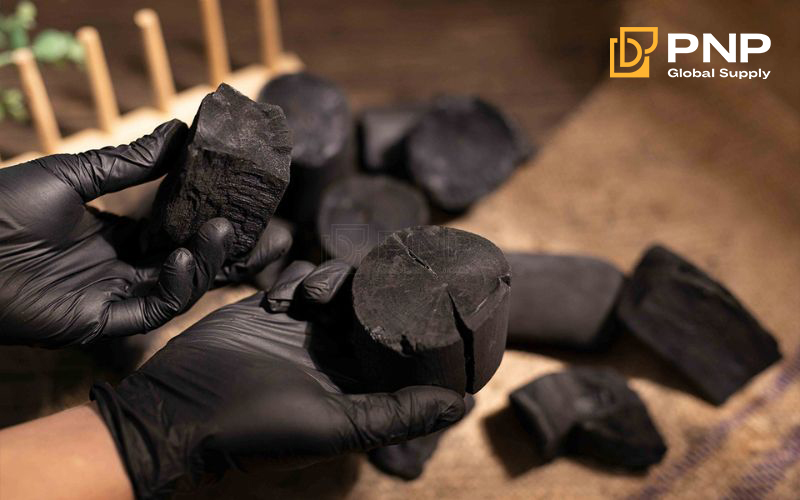The global charcoal market is becoming increasingly complex, with growing demand for transparency, sustainability, and legal compliance. For international buyers, importers, and distributors, charcoal certification is no longer a bonus—it is essential. Certified charcoal ensures that the product you are sourcing meets international standards, originates from legal and sustainable sources, and complies with environmental and trade regulations.
But how can you tell if a supplier is truly certified? And what kinds of certifications matter most? This guide breaks it down, helping you verify charcoal documentation with clarity and confidence.

Understanding Charcoal Certification
Charcoal certification refers to official recognition that the charcoal you purchase has been produced, processed, and exported in accordance with recognized environmental, safety, and trade standards. This certification helps distinguish high-quality, legally sourced, and eco-friendly charcoal from products that could pose legal, ethical, or environmental risks.
Depending on the type of certification, it may verify one or more of the following:
- Legal sourcing of raw materials (e.g., wood from licensed forestry operations)
- Sustainability of production methods (e.g., clean carbonization processes)
- Compliance with international charcoal quality standards
- Approval by export and customs authorities
For international buyers, especially those dealing with retail chains, foodservice providers, or government agencies, sourcing from certified charcoal suppliers is not just a good practice—it is often a requirement.
Common Types of Charcoal Certification
There are several forms of charcoal certification that importers should look for. Each type provides insights into different aspects of the production and supply process.
FSC Certified Charcoal
One of the most recognized certifications globally is from the Forest Stewardship Council (FSC). FSC certified charcoal is produced using wood from responsibly managed forests. It ensures that the raw materials are harvested legally, without contributing to deforestation or harming local ecosystems.
You can verify any FSC-certified supplier by checking their status on the FSC’s public database at FSC-certified. This platform allows buyers to check:
- Company name and address
- License code
- Product category (e.g., charcoal)
- Certification status and expiration date
FSC certification is highly valued in the EU and other environmentally conscious markets.

2.2. Sustainable Charcoal Certification
Some regions have their own sustainable charcoal certification systems. These focus on reducing carbon emissions, encouraging reforestation, and ensuring that producers follow approved environmental protocols. In some countries, government-issued sustainability labels accompany export licenses, especially for biochar or carbon-neutral charcoal.
Importers working with environmentally sensitive markets should ask for evidence of such certifications or sustainability reports from the producer.
2.3. Charcoal Quality Standards
Charcoal is often tested and certified based on its physical and chemical properties. This includes:
- Calorific value (measured in kcal/kg)
- Fixed carbon content
- Ash content
- Moisture percentage
- Volatile matter
These indicators are critical for determining whether charcoal is suitable for grilling, industrial, or household use. Third-party labs such as SGS, Intertek, or Bureau Veritas can issue test reports based on these charcoal quality standards.
Buyers should request lab reports for each shipment or batch to ensure product consistency.
2.4. Charcoal Export Documents
Beyond certifications, charcoal shipments must be accompanied by complete charcoal export documents. These vary by country but typically include:
- Commercial invoice and packing list
- Bill of Lading
- Certificate of Origin
- Phytosanitary Certificate (for plant-based materials)
- MSDS (Material Safety Data Sheet)
These documents help verify the legal status of the goods and their compliance with import regulations in the buyer’s country.
Why You Need to Verify Certification
Sourcing from certified suppliers protects your business and brand. Here’s why verifying charcoal certification is critical:
Ensures Legal Charcoal Sourcing
Markets such as the EU, United States, and Canada prohibit the import of products derived from illegal deforestation. Without proper certification, your business may unknowingly purchase charcoal produced from unlicensed wood harvesting, putting you at risk of fines, seizures, or contract losses. Proper documentation ensures legal charcoal sourcing and smooth customs clearance.
Meets Charcoal Compliance Requirements
Retailers, hospitality chains, and import agents increasingly require documentation to prove that your charcoal meets environmental and trade regulations. By sourcing certified charcoal, you automatically meet these rising charcoal compliance requirements, making your products more attractive to larger customers.
Demonstrates Environmental Responsibility
Today’s consumers are highly conscious of sustainability. Using eco-friendly charcoal helps reduce your environmental footprint and aligns your business with global trends toward carbon neutrality, sustainable sourcing, and ethical trade practices.
Reduces Risk in Supply Chain
Certification provides transparency and accountability. It reduces the chances of receiving poor-quality charcoal or encountering unexpected delays due to missing documentation. In short, certified suppliers offer more reliable and professional partnerships.
Step-by-Step Guide to Verifying Charcoal Certification
Verifying a supplier’s certification is a process that involves documentation review, online verification, and third-party confirmation. Follow these steps for a secure and informed purchasing decision.
Step 1: Request and Review Documentation
Ask your supplier to provide clear copies of all relevant certifications, including:
- FSC license (if applicable)
- Lab test reports (SGS, Intertek, etc.)
- Export licenses and environmental permits Make sure the documents are current and contain verifiable registration numbers, issue dates, and issuer information.
Step 2: Verify via Official Websites
Use the certifying body’s website to validate credentials. For example, with FSC certified charcoal, go to info.fsc.org and enter the certificate code or supplier name.
Compare the certificate details with the supplier’s business information to ensure consistency.
Step 3: Cross-Check with Charcoal Export Documents
Make sure that certification information matches what’s listed on official shipping and trade documents. Look for consistency in:
- Company name
- Product description
- Harmonized System (HS) code
- Origin country
Any mismatch could signal counterfeit documentation or careless filing.
Step 4: Confirm with Certifying Agencies
If you have doubts, reach out directly to the certifying organization via email or phone. Legitimate agencies like FSC, SGS, or TÜV will confirm whether a certificate is genuine and valid.
Doing so is especially important for large-volume or long-term contracts.
Step 5: Conduct a Pre-Shipment Inspection
Hire a third-party quality inspection agency to physically verify the charcoal before it leaves the supplier’s warehouse. A comprehensive charcoal inspection process includes:
- Physical inspection (uniform size, low dust, packaging)
- Lab sampling for carbon, ash, and moisture content
- Quantity count and loading supervision
This is the final layer of assurance before the goods are shipped.
Warning Signs of Fake or Invalid Certification
Beware of these red flags when reviewing a supplier’s documents:
- No registration number or fake-looking stamp
- Expired certificates or missing issue dates
- Scanned or poorly edited documents
- Supplier refuses to provide original or official copies
- Quality test reports not issued by reputable labs
These may indicate falsified documents or lack of proper authorization.
Where to Find Certified Charcoal Suppliers
Working with verified suppliers saves time, reduces legal risk, and supports long-term business growth. To find legitimate certified charcoal suppliers, consider the following channels:
- FSC Certified Supplier Database – Ideal for sourcing from responsible, eco-conscious producers
- Alibaba Verified Supplier Listings – Filter by certifications like FSC or SGS
- Industry trade shows such as Interzum, Ambiente, or specialized charcoal expos
- Vietnamese exporters with transparent documentation, such as PNP Charcoal, who specialize in certified mangrove, coffee, or coconut shell charcoal for export markets
Always prioritize transparency and documentation over low prices.
PNP Charcoal is proud to offer FSC-certified products, guaranteeing sustainable and responsibly sourced charcoal. For more details, please visit our website below: PNP Charcoal

Conclusion
In a global market increasingly focused on environmental responsibility and traceable sourcing, charcoal certification is the key to sustainable growth. It protects your brand, ensures compliance, and builds long-term partnerships based on trust.
Whether you’re a foodservice distributor, a BBQ charcoal retailer, or a procurement officer for a large organization, taking the time to verify charcoal certification ensures you’re working with the right partners—and sending the right message to your customers.
Make certification your first checkpoint—not an afterthought.
________________________________
Contact us for more information
Facebook: PNP Charcoal
Instagram: PNP Charcoal
Email: info@pnpglobalsupply.com

